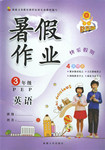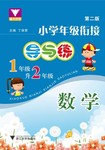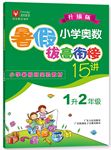题目内容

The Poetry Foundation recently named American poet Jack Prelutsky as the nation's first children's poet laureate(桂冠诗人). The group created the award as a way to increase children's love of poetry.
As children's poet laureate, Jack Prelutsky will give two public readings in the next two years. He will also advise the Poetry Foundation about children's literature and take part in projects concerning children and poetry.
Jack Prelutsky has been writing poetry for children for almost forty years. He has written more than thirty-five books of poems. His first book was called A Gopher in the Garden. It was published in 1967. His latest is called Behold the Bold Umbrellaphant and Other Poems.
Jack Prelutsky is well known for creating new words by combining two words to create a new kind of creature. For example, he combined "radish" with "shark" to get "radish ark". "Lion" and "broccoli" became "broccoli on". He also created "umbrellaphant", a mixture of the words "umbrella" and "elephant".
Jack Prelutsky says that children like his poems because he writes about things they care about. Poetry researchers say that Jack Prelutsky's poems recognize children's feelings. An example of this is the poem My Sister Is a Werewolf which is about how it feels to be different.
Jack Prelutsky also writes poems about American holidays. His poem It's Halloween is a very famous one about the holiday celebrated at the end of October.
1. Which of the following can be the best title of the passage?
A. Poems with New Words Grow Popular B. First Children's Poet Laureate Named
C. Children's Love for Poetry Increased D. Jack Prelutsky Awarded Nationwide
2. What is Jack Prelutsky famous for?
A. Creating new words in his poems. B. His productivity.
C. His long time of writing. D. His poems about American holidays.
3. Children are in favour of his poems because
A. they are easy to understand B. the poet is famous
C. children like reading new words D. the poet understand their feelings
4. What can we infer from the passage?
A. It was A Gopher in the Garden that brought him fame.
B. The poet will be kept busy over a lot of activities.
C. Jack Prelutsky will no longer write about American holidays.
D. The poem It's Halloween must have been written for adults.
5. Put the following items in right order according to the passage.
a. two public readings b. A Gopher in the Garden
c. Behold the Bold Umbrellaphant and Other Poems d. My Sister Is a Werewolf
A. b--c--d--a B. d--a--c--b C. b--d--c--a D. a--b--c--d
BADBC

 学练快车道快乐假期暑假作业新疆人民出版社系列答案
学练快车道快乐假期暑假作业新疆人民出版社系列答案 浙大优学小学年级衔接导与练浙江大学出版社系列答案
浙大优学小学年级衔接导与练浙江大学出版社系列答案 小学暑假作业东南大学出版社系列答案
小学暑假作业东南大学出版社系列答案 津桥教育暑假拔高衔接广东人民出版社系列答案
津桥教育暑假拔高衔接广东人民出版社系列答案Rae Armantrout, who has been a poetry professor at the University of California San Diego (UCSD) for two decades, has won the 2010 Pulitzer Prize in the poetry category for her most recent book, "Versed".
"I'm delighted and amazed at how much media recognition that the Pulitzer brings, as compared to even the National Book Critics Award, which I was also surprised and delighted to win," said Armantrout.
"For a long time, my writing has been just below the media radar, and to have this kind of attention, suddenly, with my 10th book, is really surprising."
Armantrout, a native Californian, received her bachelor's degree at UC Berkeley, where she studied with noted poet Denise Levertov, and her master's in creative writing from San Francisco State University. She is a founding member of Language Poets, a group in American poetry that analyzes the way language is used and raises questions to make the reader think.
In March, she won the National Book Critics Circle Award for "Versed."
"This book has gotten more attention," Armantrout said, "but I don't feel as if it's better."
The first half of "Versed" focuses on the dark forces taking hold of the United States as it fought the war against Iraq. The second half looks at the dark forces casting a shadow over her own life after Armantrout was diagnosed with cancer in 2006.
Armantrout was shocked to learn she had won the Pulitzer but many of her colleagues were not. "Rae Armantrout is a unique voice in American poetry," said Seth Lerer, head of Arts and Humanities at UCSD.
"Versed", published by the Wesleyan University Press, did appear in a larger printing than her earlier works, which is about 2,700 copies. The new edition is scheduled to appear in May.
【小题1】According to Rae Armantrout, __________
| A.her 10th book is much better |
| B.her winning the Pulitzer is unexpected |
| C.the media is surprised at her works |
| D.she likes being recognized by her readers |
| A.She published a poetry textbook. |
| B.She used to teach Denise Levertov. |
| C.She started a poets' group with others. |
| D.She taught creative writing at UC Berkeley. |
| A.It partly concerns the poet's own life. |
| B.It is mainly about the American army. |
| C.It is a book published two decades ago. |
| D.It consists of three parts. |
| A.should write more | B.has a sweet voice |
| C.deserves the prize | D.is a strange professor |
A. "Versed" has been awarded twice. B. Cancer made Armantrout stop writing.
C. Armantrout got her degrees at UCSD. D. About 2,700 copies of "Versed" will be printed.